God of Hunger
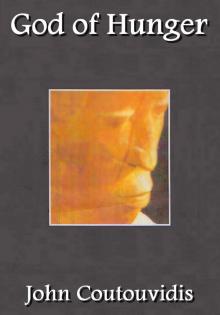

Author: John Coutouvidis
Category: Other
Published: 2011
Series:
View: 292
Read OnlineGod of Hunger is a fascinating and imaginative novel which take us to different settings and allows the reader to view the story through the eyes of different sets of characters, seeing the unfolding history of the end of colonial Africa from the points of view of the Greek and Polish communities.Published by The Electronic Book Companywww.theelectronicbookcompany.comGod of Hunger is a fascinating and imaginative novel which take us to different settings and allows the reader to view the story through the eyes of different sets of characters, seeing the unfolding history of the end of colonial Africa from the points of view of the Greek and Polish communities as well as other expatriates, in a period when German rule had given way to British, which in turn was about to be replaced by native independence. The struggle of the non-Africans to find a role for themselves and continue the colonial system by subtler means seems to be the message of the novel, and their struggle a microcosm of twentieth-century world history. The book tells the tragic life story of Theo Kokopoulos. Theo is the son of Kostas Kokopoulos, an ambitious expatriate Greek who has lived in Tanganyika since the 1920’s, having been part of the great migration that followed the end of the First World War. We first meet ‘KK’, as he is known, on the verge of independence, as he angles for position in the new government, hoping to nudge it towards a Soviet-style Socialist utopia. The narrative follows his son, Theo, through his upbringing, in which he finds himself torn between his power-hungry, anti-Semitic father and Misha, a survivor of the Holocaust. In a sense Theo seems to represent the vulnerability of the post-war world, torn between two conflicting directions. In the end, neither side gains full control, as he contracts cancer; despite moving to London for specialized treatment, Theo dies.In this opening part we are treated to a bravura display of historiography, as the events of the main narrative are woven into the world events of the twentieth century: the demise of Austria-Hungary and the Ottomans, the Greco-Turkish conflict, the rise and fall of British Southern Africa, the emergence of apartheid and the imprisonment of Mandela. The breadth of reference is striking- even Blackadder Goes Forth is quoted at length.The focus shifts away from the Greeks, simultaneously dividing between Polish expatriates and the Tanganyikan natives moving for independence. It becomes clear fairly quickly that the author is just as interested in the Poles as in the Greeks, and although he seems to have shot many of his European historical bolts in the first part, he has plenty left. He weaves a compelling tale about a family of Polish émigrés. The lives of Marisha’s lovers mirror Theo’s in some ways; they have a passionate devotion to hunting game, as well as men. The symbolism maintains its intensity when we return to ‘KK’. In a strange, idiosyncratic and ambiguous manner, his death and the bizarre scenes in which he is mummified seem to represent the fate of the European enterprise in Africa.In conclusion, God of Hunger is an extraordinary work of literary fiction. Obviously it isn’t aimed at a popular readership. It is idiosyncratic, complex and makes fairly significant demands on the reader. But it is very intelligent, erudite, and manages to compel the reader’s involvement from the very beginning. The sense of history is grandiose without being grandiloquent; a quality which it owes to its basis in well drawn human characters. I recommend this novel highly.’
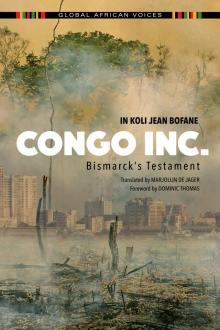 Congo Inc.
Congo Inc.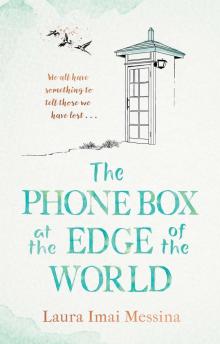 The Phone Box at the Edge of the World
The Phone Box at the Edge of the World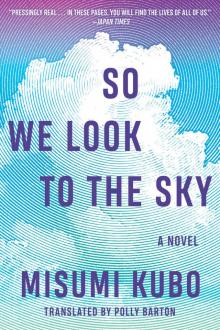 So We Look to the Sky
So We Look to the Sky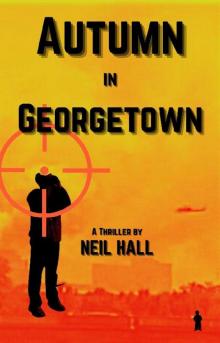 Autumn In Georgetown: A 9/11 Thriller
Autumn In Georgetown: A 9/11 Thriller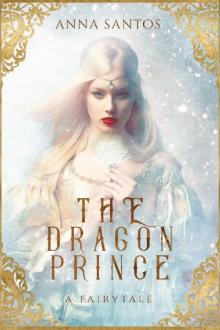 The Dragon Prince
The Dragon Prince Dreamy & Deep
Dreamy & Deep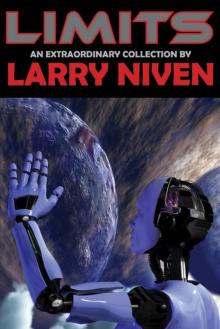 Limits
Limits Death in Castle Dark
Death in Castle Dark